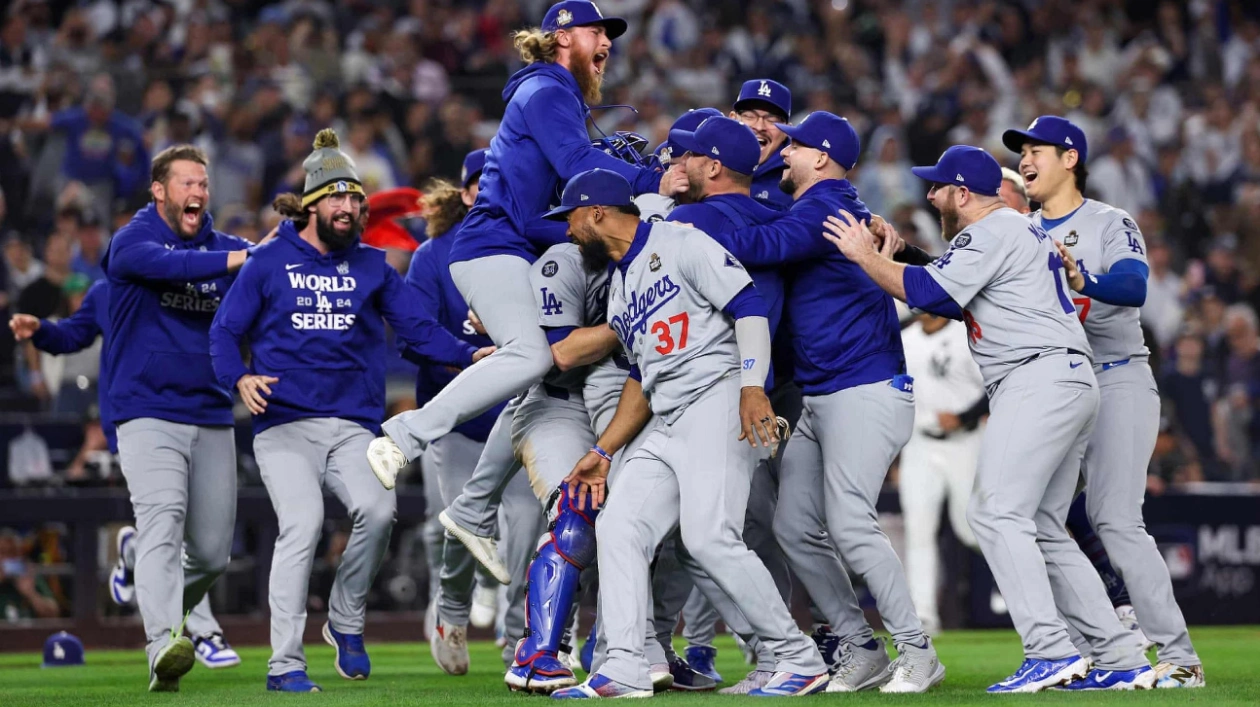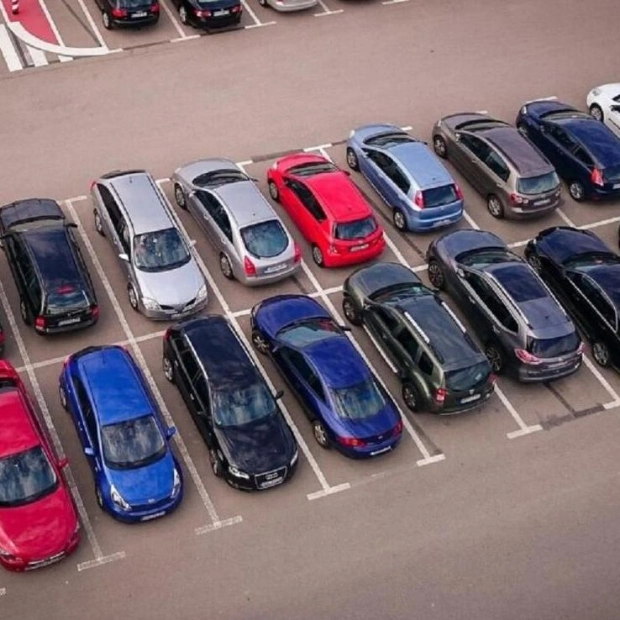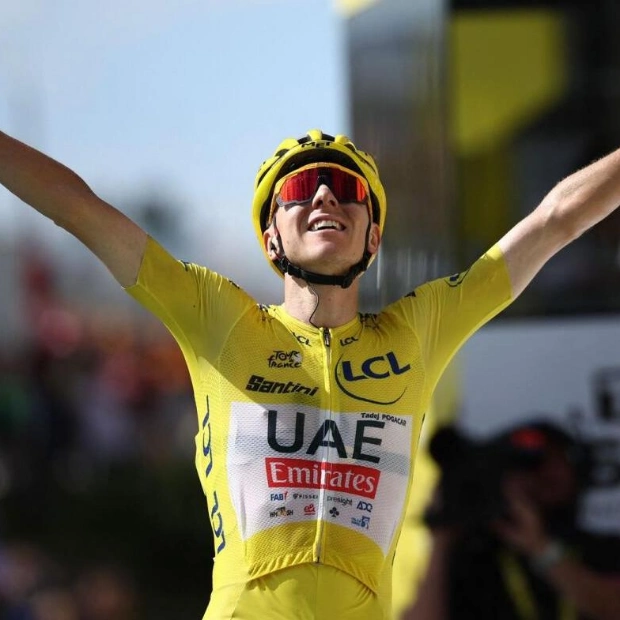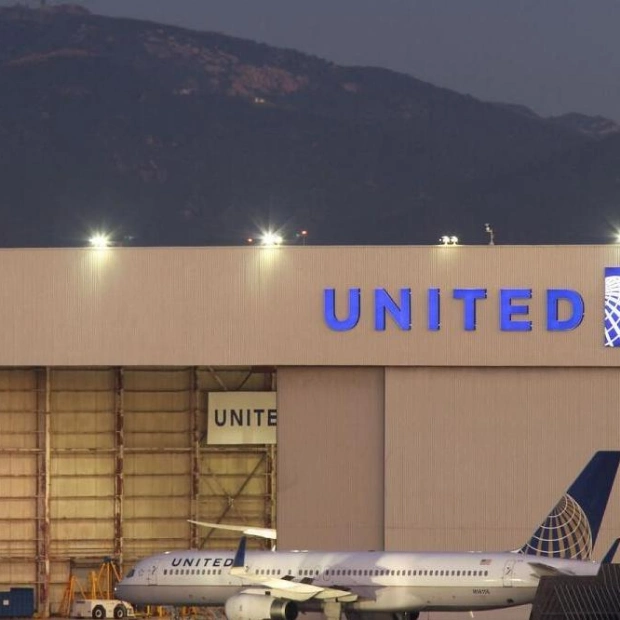Hours after the final out of the 2024 Major League Baseball season, Yankee Stadium was blanketed with golden confetti. Jack Flaherty, who had started Game 1 of the World Series for the now-champion Los Angeles Dodgers, noticed Shohei Ohtani, the likely National League MVP, in the midst of an interview with the MLB Network crew on a makeshift stage in left field.
“Sho!” Flaherty shouted over the cheering fans. “Focus!” he teased, intentionally distracting Ohtani. Ohtani playfully motioned for Flaherty to join him, but the pitcher declined, instead embracing a shirtless Walker Buehler, who had both started Game 3 and closed out Game 5. This brief interaction stood out amidst the celebrations, partly because Ohtani is such a captivating mystery. Any glimpse of his persona beyond sports is a delight to discover. Additionally, neither Ohtani nor Flaherty was part of the Dodgers' roster last year. Buehler was recovering from a second Tommy John surgery, yet the 2023 team managed to win 100 games.
On December 9th last year, the Dodgers, fresh off 11 consecutive postseason appearances and the most regular-season wins in MLB over that period, did what most experts anticipated but still shocked the sports world by awarding a $700 million contract to Ohtani. This move was akin to bringing in a modern-day Babe Ruth, who not only pitched but also boasted speed and global stardom.
In essence, the best team in baseball acquired one of the best players the game has ever seen. Ohtani was just one part of the Dodgers' offseason spending spree, which totaled an estimated $1.2 billion to transform a team that could reach October into one that could consistently succeed there. Nearly 11 months later, the Dodgers defeated the storied New York Yankees, four games to one, in the World Series. Cause met effect.
Of course, it’s not that simple; reducing the past year in baseball to that equation would be incomplete. Ohtani had already made himself baseball's main character while playing for the Angels, who failed to capitalize on his presence or that of another MVP, Mike Trout. Ohtani’s move to the Dodgers brought even more attention to a team already accustomed to the spotlight.
The star-studded Dodgers could be considered a dynasty, the defining team of the modern era. However, they had only won one title during their period of dominance, and that was in the Covid-shortened 2020 season, which lacked a championship parade due to the circumstances. Instead of regrouping after each October exit, the Dodgers repeatedly doubled down, adeptly managing to get value from players who had won MVPs elsewhere and from undervalued reclamation projects.
“I think we have the best organization in baseball with consistency, but you’ve still got to go out there and play the schedule,” said Dodgers manager Dave Roberts, whose status is often debated between Hall of Fame and hot seat, depending on playoff performance.
“I feel that way every year,” Dodgers president Stan Kasten said after Wednesday’s game. “But the postseason is not built that way. The postseason has ups and downs. In a three-, five-, or seven-game series, it’s not just the best team that wins. You’ve got to get breaks. This year, we were the best team, and we had some breaks along the way.”
The clinching game on Wednesday night in the Bronx seemed full of fortuitous breaks, with the Yankees making errors and missing opportunities. But if someone suggests the Yankees handed the Dodgers a championship, don’t believe it. Yes, at times, it seemed the Yankees were losing more than the Dodgers were winning, especially when Yankees slugger Aaron Judge struck out seven times in the first four games. But it was the Dodgers' ability to capitalize on these mistakes that propelled them to victory.
Even the Dodgers could be seen as underdogs by the time they took the field on Halloween eve, given their injuries. Ohtani struggled after dislocating his shoulder, and World Series MVP Freddie Freeman played through an ankle injury. The Dodgers led MLB in player games missed to IL stints during the regular season.
This is why they kept adding players. Flaherty, who faltered in Game 5 but had been a boon to the rotation, was a trade-deadline acquisition. So were NLCS MVP Tommy Edman and Michael Kopech, who allowed runs in just two of his 12 relief appearances this postseason. This Dodgers team, unlike recent versions, was not a superteam, failing to reach 100 wins during the regular season. Yet, any missing piece could have meant an early offseason.
The moral of the Dodgers’ 2024 title might be to never be complacent or to win by acquiring undeniable talent at any cost. Or perhaps it’s the almost compulsive combination of both that defines this team. We know the small sample size of October is unfair and somewhat uncontrollable, and the Dodgers have established themselves as a model modern franchise through their regular season record. Yet, what everyone in baseball really wants is a ring and a parade. No amount of sustained excellence can match the joy of ending the season as champions, sticky with champagne and surrounded by the scent of cigars.
Source link: https://www.theguardian.com






